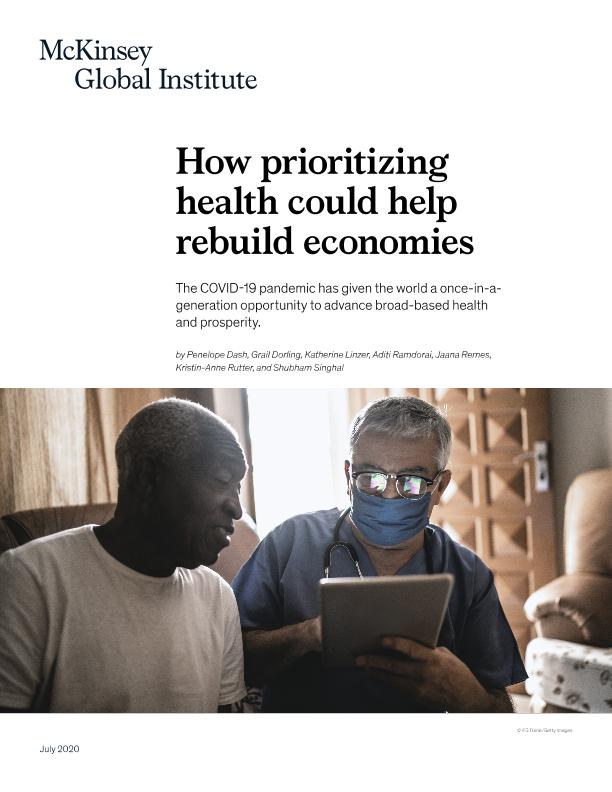How prioritizing health could help rebuild economies

Contenido multimedia no disponible por derechos de autor o por acceso restringido. Contacte con la institución para más información.
| Tag | 1 | 2 | Valor |
|---|---|---|---|
| LDR | 00000cam a22000004b 4500 | ||
| 001 | MAP20200027072 | ||
| 003 | MAP | ||
| 005 | 20200811123527.0 | ||
| 008 | 180511e20200701usa|||| ||| ||eng d | ||
| 040 | $aMAP$bspa$dMAP | ||
| 084 | $a931 | ||
| 245 | 1 | 0 | $aHow prioritizing health could help rebuild economies$cPenelope Dash...[Et al.] |
| 260 | $aNew York$bMcKinsey & Company$c2020 | ||
| 300 | $a5 p. | ||
| 520 | $aBefore the COVID-19 pandemic, health typically wasn't part of economic-growth discussions: the policy debate often focused on controlling healthcare costs. Our yearlong research effort, culminating in the publication of Prioritizing health: A prescription for prosperity, shows that this focus misses the bigger picture. Informed forecasts suggest that the pandemic and its effects will cost the global economy up to 8 percent of real GDP in 2020. Yet each year, poor health costs twice as mucharound 15 percent of global real GDP from premature deaths and lost productive potential among the working-age population. As organizations around the world look for tools to speed up economic recovery, rethinking health as an investment, not just a cost, could accelerate growth for decades to come. | ||
| 650 | 4 | $0MAPA20200005599$aCOVID-19 | |
| 650 | 4 | $0MAPA20080552022$aPandemias | |
| 650 | 4 | $0MAPA20080593674$aSistemas sanitarios | |
| 650 | 4 | $0MAPA20080580872$aImpacto económico | |
| 650 | 4 | $0MAPA20090043374$aAtención sociosanitaria | |
| 650 | 4 | $0MAPA20080567262$aSalud pública | |
| 650 | 4 | $0MAPA20080580698$aGestión de crisis | |
| 650 | 4 | $0MAPA20080577902$aRiesgo sanitario | |
| 650 | 4 | $0MAPA20080596095$aEconomía de la salud | |
| 700 | 1 | $0MAPA20200014027$aDash, Penelope | |
| 710 | 2 | $0MAPA20080442569$aMcKinsey & Company |

